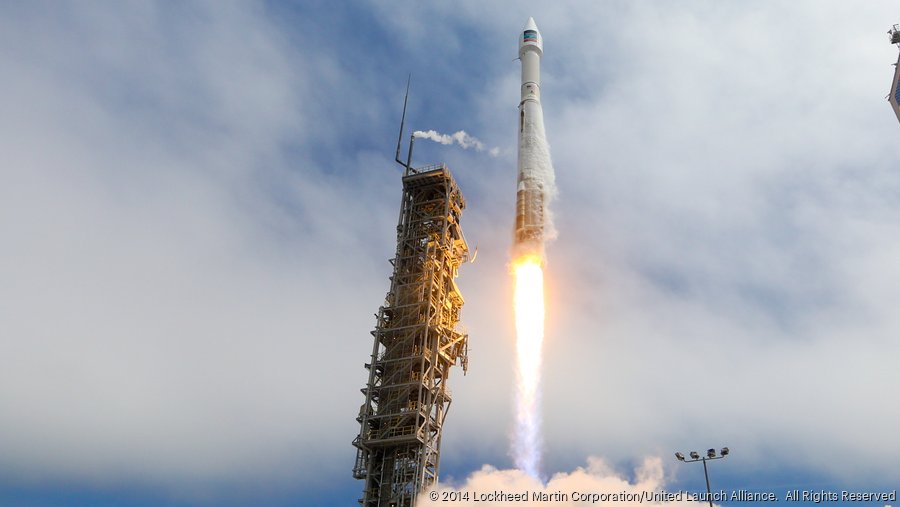United Launch Alliance postponed Friday’s launch of DigitalGlobe Inc.’s latest earth-observation satellite to investigate a potential leak in a fuel line discovered about 30 minutes before liftoff.
Centennial-based ULA says it will try again Sunday to launch the satellite from Vandenberg Air Force Base on the California coast, if it can fix the leak in a ground line used to supply liquid hydrogen to its Atlas V rocket.
The tentative launch has a 14-minute lift-off window that starts at 12:30 p.m. Denver time Sunday.
An iceball formed on a groundline carrying liquid hydrogen, Tory Bruno, CEO of ULA, said on Twitter, shortly after final fueling of the rocket ahead of launch Friday. The ice prompted ULA to shut down the launch to investigate and fix the leak, which Bruno called "really, really small."
The company initially said it would try to launch WorldView-4 again Saturday, but then decided to take more time.
"Always better to be on the ground, wishing you were in the air than the other way around," Bruno tweeted.
The commercial satellite mission brings together several of Colorado’s biggest aerospace companies.
Wesminster-based DigitalGlobe (NYSE: DGI) operates a fleet of four orbiting satellites that collect high-resolution images and data about the earth’s surface.
It sells images and information it collects to the federal government, international aid agencies and to client companies that range from media outlets using its data in news reporting to agribusiness and oil and gas exploration companies.
WorldView-4 is meant to help meet rising demand for satellite coverage and information gathering, the company says.
The satellite, formerly called GeoEye-2, was built by Jefferson County-based Lockheed Martin Space Systems Co. in Sunnyvale, California. Former DigitalGlobe rival GeoEye commissioned the satellite and paid for its construction.
DigitalGlobe bought GeoEye in 2013, and the company renamed the satellite WorldView-4 after the merger closed.
The satellite’s been ready for launch for more than two years. DigitalGlobe originally planned to launch it in 2017, but the demand for “geospatial ‘big data’ and analytics” from customers drove DigitalGlobe to move up the satellite’s launch, said CEO Jeffrey Tarr.

